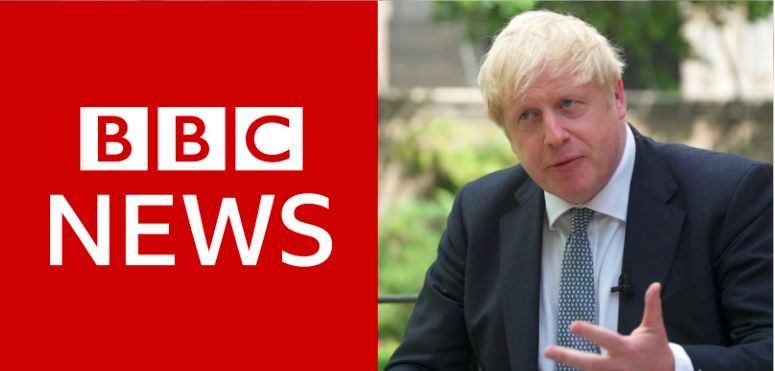The British Broadcasting Corporation, known most commonly as the BBC has landed itself in a hot pool of trouble yet again. In fact, among the many blunders and scandals that have hit the BBC over the past many decades, the most recent one threatens the very foundation of Britain’s grand old media organisation. We are talking about explosive details which have now emerged in relation to the BBC’s “interview of the century” with late Princess Diana of the royal family. The details have shaken the public’s trust in BBC – if there was any remaining at all.
The Boris Johnson government, meanwhile, is preparing to overhaul BBC’s structure and organisation. What’s worse for the BBC, the British government is also looking to review the finances of the organisation. Up for severe deliberation at the royal charter review would be the prospect of stripping BBC off public funding. Currently, the British taxpayers pay for the BBC to make a mockery out of the noble profession of journalism.
The Boris Johnson-led British government, with the approval of the royal family, is planning to punish BBC for its repeated misadventures and crimes against journalism. Speaking to the same effect, Home Secretary Priti Patel has warned BBC of sweeping governance and funding reforms when its royal charter is reviewed next year. Refusing to rule out criminal prosecutions over the issue, she said the broadcaster needed to rebuild “trust and confidence”
Making the British government’s stand on the explosive scandal which has hit BBC clear, the Home Secretary said, “If there is subsequent action that needs to be taken, then clearly – alongside the publication of this report and lessons being learned and changes, changes to the institution, structure, governance, accountability – then that will follow.”
BBC, since the publication of the Dyson Inquiry, has earned outrage the world over. The British Royal Family, on its part, is infuriated with the public broadcaster. The Dyson Inquiry has found that journalist Martin Bashir used “deceitful behaviour” and forged documents to secure his world exclusive interview with Princess Diana in 1995. The inquiry also concluded that an internal BBC investigation had covered up the unethical and scamster-like behaviour of Bashir.
Reacting to the publication of the inquiry, Prince William said the BBC’s failures contributed to the deterioration of his parents’ marriage and worsened Diana’s feelings of paranoia. He also said that “the deceitful way the interview was obtained substantially influenced what my mother said.” His brother, Prince Harry said that the “ripple effect of a culture of exploitation and unethical practices” ultimately took his mother’s life.
On its part, the BBC has written to apologise for its shameful behaviour to Princes William and Harry, as well as the Prince of Wales and Diana’s brother Earl Spencer. It has come to light that journalist Martin Bashir deceived Diana’s brother by producing forged documents, which seemed to prove that individuals were being paid for by the Royal Family, to keep the princess under surveillance.
As a result of being misled by the BBC, Princess Diana opened up about the inner happenings and culture of the Royal Family like nobody ever had. She spoke at length about her devastated marriage with husband Prince Charles, and how she too had been “unfaithful”. Princess Diana was practically made an outcast from Birmingham Palace, and died two years later in a car crash in Paris.
BBC, for its outrageous conduct, now faces the prospect of being stripped off its funding, thus imperilling its extravagant operations. The British government seems adamant this time around to overhaul the organisation and reform it radically.








